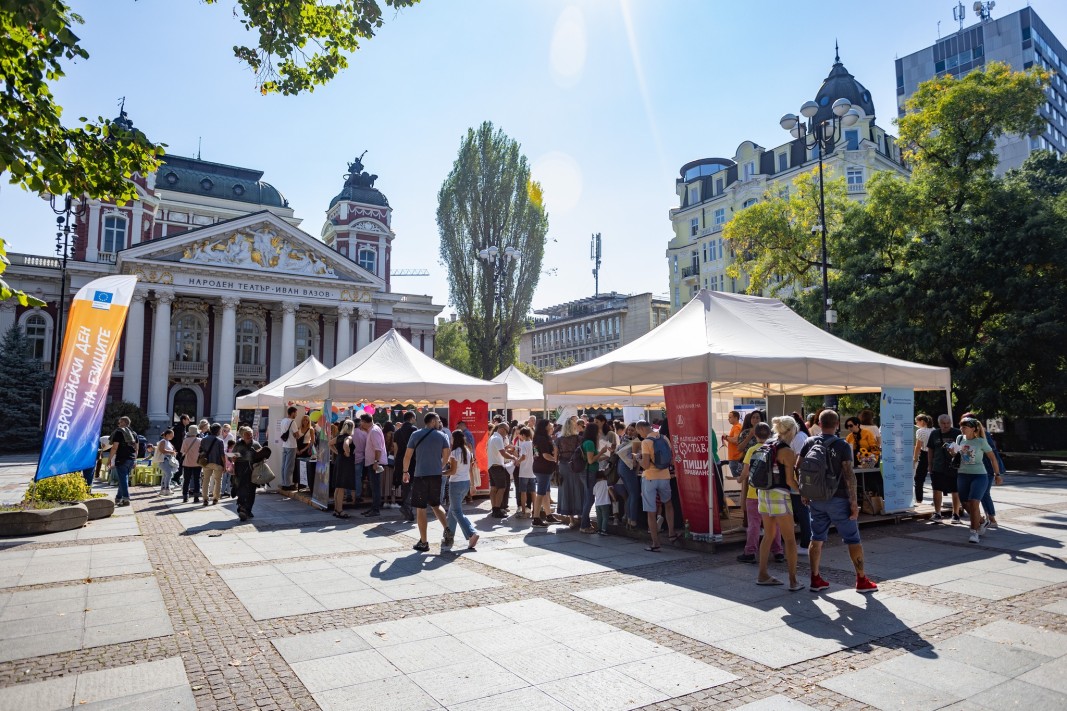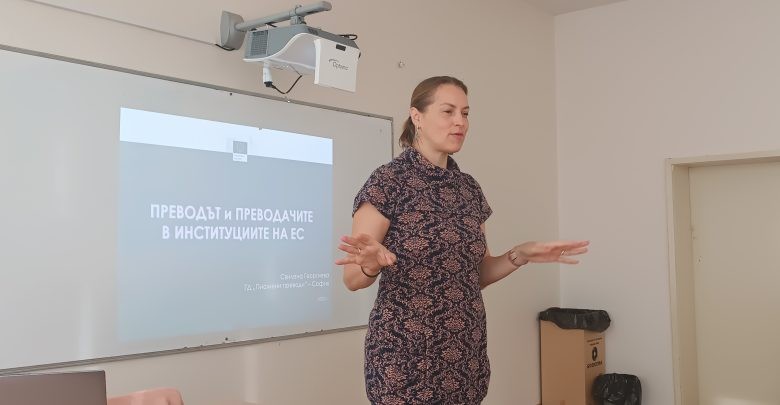Cultural and linguistic diversity - this is what distinguishes the European Union, and the languages spoken in the community are an important part of Europe's cultural heritage. There are currently 24 official languages in the EU and each time a Member State joins the EU, the number increases. This diversity is also the subject of a special day in the Community calendar, which is celebrated in all Member States. The aim is to make Europeans more familiar not only with their own mother tongue, but also with the languages of Europe, and to encourage the learning and use of foreign languages in translation and interpretation.

"We are trying to create a festive atmosphere with lots of language games, quizzes, prizes and lots of music. And for all those who will not be able to be there, we offer an online quiz on the European Day of Languages platform at https://edl-bulgaria.eu..

It is open to everyone over the age of 14 from 1 to 30 September," explains to Radio Bulgaria Svilena Georgieva, local representative of the European Commission's Directorate-General for Translation, the organization closest to the European Day of Languages.

Today we mark the 105th anniversary of the birth of academician Valeri Petrov - poet, novelist, screenwriter, playwright and translator. Born in Sofia on 22 April 1920 under the name of Valeri Nissim Mevorakh, he graduated in medicine from Sofia..
President Rumen Radev's "Support a Dream" charity initiative has attracted the support of musicians, stylists, designers and donors, the head of state's press secretariat said. A prom hosted by the president each spring brings together high school..
The Speaker of the National Assembly Natalia Kiselova will today award the winners of the 32nd Children's Easter Festival in the Serbian town of Bosilegrad. The children will compete in three categories – for the strongest, most beautiful and most..
The Speaker of the National Assembly Natalia Kiselova will today award the winners of the 32nd Children's Easter Festival in the Serbian town of..
A colorful Easter celebration under the slogan “Let’s sing and dance on Easter, on the square” will take place today in the open air in the town of Stara..
President Rumen Radev's "Support a Dream" charity initiative has attracted the support of musicians, stylists, designers and donors, the head of state's..

+359 2 9336 661
